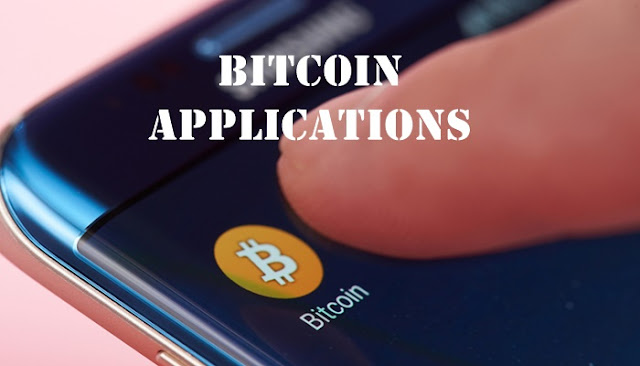Introduction
How are things going today? Are you trying to stay up with the quick-changing technological world? There's no need to go elsewhere since Bitcoin is revolutionizing communications. Many assert that Bit Ai Method is an authorized and reliable marketplace for purchasing, selling, and utilizing bitcoins.
Not a drill, this. Indeed, you read correctly: One of the most well-known types of cryptocurrency, Bitcoin, is causing a stir in the communications industry. It's time to investigate the potential contributions that Bitcoin may make to the cryptocurrency industry, whether you're just starting started or already have a reliable system in place for transactions.
This essay will examine Bitcoin's potential uses and advantages in the telecoms industry. Several advantages render this digital money an appealing proposition for people in this field, from streamlined transactions to increased security. Are you prepared to jump in? Let's get going!
Telecommunications and cryptocurrencies
Bitcoin and other cryptocurrencies are digital assets based on distributed and decentralized ledgers. This technology is groundbreaking because it provides a safe and open platform for handling payments and business dealings between multiple individuals.
The telecoms industry is also expected to gain a lot from this technology. One benefit of using Bitcoin for telecom services is that transactions would nearly always be quick, cost nothing to process, and there would be practically little chance of fraud. Additionally, telecom businesses may use Bitcoin's ledger technology to improve the accuracy of their records by recording and preserving customer data and guaranteeing that each client's personal information is kept safe and secure.
But perhaps most exhilaratingly, blockchain may pave the way for a new generation of communication services; consider client-to-client small transactions that make it simple to buy modest quantities of content information or even tariff plans with pay-per-minute rates. With these opportunities, it should come as no surprise that several telecom businesses are considering using cryptocurrencies in their sector.
Benefits of Bitcoin Use in Telecoms
There are several significant benefits to employing Bitcoin for your telecoms firm. It is quicker, safer, and more straightforward than convenient payment options. Here are a few advantages in brief:
→ Speed
The incredible speed of Bitcoin is one of its benefits. All transactions are immediate and irrevocable, which lowers the possibility of fraud. It is very beneficial for telecom companies since it increases the speed and security of payments.
→ Security
Another significant benefit is that Cryptocurrency transactions are safer than other payment methods since they are protected by encryption. It may provide additional protection for your client's data and assist in defending against fraudulent and hacker assaults.
→ Minimal Transaction Fees
Another benefit of utilizing Bitcoin is that there are no transaction fees to be paid. It implies that you may avoid paying costs that institutions or other financial organizations might ordinarily impose on conventional payments.
→ Anonymity
Since all interactions are documented using pseudonyms rather than actual names or other identifying details, Bitcoin also grants users anonymity. It might be helpful for telecom companies that wish to safeguard client data and keep it safe from hackers and other actors.
In the end, Bitcoin offers a lot of potential uses in the telecoms industry, from speedier payments to cheaper transaction costs and improved security. Still, it's crucial to do your study before committing!
Possible Future Uses and Consequences
You should be aware that users can use cryptocurrency for communications. This adaptable cryptocurrency indeed offers many opportunities. The following are some possible future uses and effects of bitcoin in the telecoms industry:
→ data exchange
Bitcoin has the potential to revolutionize data transfer by enabling faster, more secure, and less expensive transactions. Data could be sent securely and decentralized with Bitcoin, with very little chance of infiltration or manipulation. It might have a significant impact on the telecom sector.
→ Cybersecurity
The distributed ledger design of the blockchain technology that powers Bitcoin makes it practically hard to attack or alter. It makes it a very secure technology. As a result, telecom firms may be able to employ Bitcoin to protect their networks from malicious assaults and other online dangers.
→ Sensible contracts
Smart contracts allow users to agree between two individuals without needing a third party or intermediaries. It is ideal for the telecom industry because contractual interactions are often complicated and need effective and secure regulation.
As you can see, cryptocurrency has much potential for usage in the telecommunications industry, including smart contracts, data transmission, and cybersecurity solutions. It's reasonable to conclude that this innovative technology will continue to be crucial to this sector in the future!
Conclusion
There are many ways that users might use Bitcoin in the telecoms business, and it has the potential to transform it completely. With the possibility for more transparency and less fraud risk, Bitcoin might help with payment processing, streamline global trade, and offer a more secure method of doing business. The adoption of Bitcoin may also provide a way to build trust and security among users, improving the environment for telecom service customers. Bitcoin can transform this market and provide fresh possibilities. The potential of telecommunication services will shift drastically as the technology develops and its promise is realized.

No comments:
Post a Comment